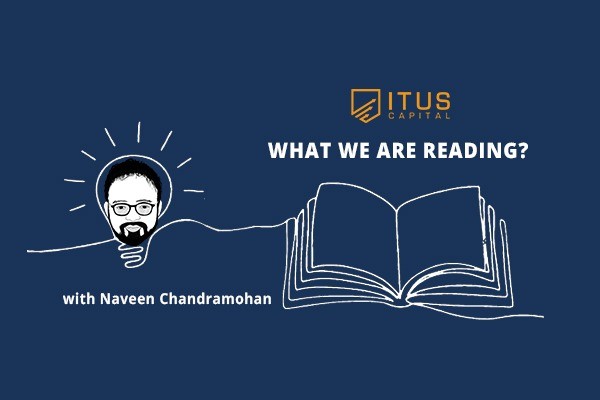
Every time I catch up with a friend or relative, the conversation often drifts into the familiar territory of “How has life been?” It’s a question that feels routine but often reveals so much about our collective state of mind. Often, the answer is a variation of the same theme: “Busy. So busy!” There’s a sigh, perhaps a hint of exhaustion, but also, strangely, a note of pride.
In today’s fast-paced world, busyness has become a badge of honor. It signals productivity, importance, and, for many, self-worth. But this cultural glorification of a packed schedule comes with a downside. It makes us equate being “not busy” with idleness or even failure. In fact, encountering someone who isn’t perpetually busy can feel almost unsettling. It’s as though we’ve collectively agreed that constant motion is a measure of a life well-lived.
Time: The Equalizer
And yet, at the heart of all this busyness lies a paradox. Time is one of the few resources in life that we all receive in equal measure. Regardless of wealth, status, or influence, every person gets the same 24 hours in a day. But what differs—and what ultimately defines the quality of our lives—is how we choose to spend those hours.
Unfortunately, time is also one of the resources we undervalue the most. We chase success, whether it’s wealth, power, or fame, as though these achievements will somehow validate the hours we’ve invested. While these pursuits are not inherently wrong—in fact, they can be deeply fulfilling—it’s worth asking ourselves: Are we spending our time in alignment with what truly matters?
This reflection is where the power of conscious time management comes into play. It’s not just about how much we accomplish but about the meaning and quality we infuse into the moments we have. The article The Tail End by Wait But Why masterfully highlights this perspective, reminding us of the finite nature of our time and the importance of choosing wisely how—and with whom—we spend it.
Reframing Our Relationship with Time
One of the most striking ideas in The Tail End is how it visualizes the remaining time we have with the people we care about. The article uses clever charts and illustrations to quantify the number of interactions we might have left with our parents, friends, or even ourselves. The results are startling and often sobering.
For example, consider this: If you’re in your 30s or 40s and you visit your parents once or twice a year, you may only have a few dozen visits left with them in your lifetime. While the numbers can vary depending on individual circumstances, the point is clear: The time we have to share with the people we love is far more limited than we realize. These aren’t just hours, days, or years—they are opportunities. Opportunities to connect, to laugh, to create memories, and to deepen relationships.
It’s a powerful reminder that the currency of life isn’t money, achievements, or accolades—it’s meaningful moments.
Why Reflection Matters
But why does this realization matter? Because without it, it’s easy to fall into the trap of living on autopilot. We fill our days with obligations, distractions, and routines, rarely pausing to ask: Am I spending my time the way I want to?
By becoming aware of the finite nature of time, we can begin to make intentional choices. This might mean prioritizing quality time with family, carving out space for hobbies, or even saying no to commitments that drain us. It could also mean shifting our mindset around productivity. After all, “being busy” is not the same as being fulfilled.
The beauty of conscious time management is that it doesn’t demand radical life changes. Small, deliberate actions can have a profound impact. Calling a friend instead of scrolling through social media, spending an afternoon with your parents, or even taking a solo walk to reflect—these simple gestures can add richness to your days.
The Balancing Act
None of this is to say that ambition, hard work, or external goals are unimportant. On the contrary, these pursuits often bring structure, purpose, and satisfaction to our lives. But they shouldn’t come at the expense of what truly matters. The key is balance: striving for success while also making room for rest, relationships, and reflection.
In many ways, the question isn’t just how we spend our time but why. Are we chasing achievements to impress others or because they align with our values? Are we filling our schedules to feel important, or are we investing in things that genuinely bring us joy?
Taking the First Step
Reflecting on time doesn’t require perfect answers or immediate changes. It’s a process—a practice of regularly checking in with ourselves and our priorities. One helpful way to start is to imagine yourself in the future, looking back on your life. What will you wish you had spent more time doing? Who will you wish you had spent more time with?
By asking these questions now, we give ourselves the opportunity to course-correct. To move from being swept along by the current of life to steering our own course.
A Life Well-Spent
Time is precious because it’s fleeting. Every hour, day, and year is an opportunity to create a life that feels meaningful—not just to others but to ourselves. The next time you find yourself caught up in the busyness of life, take a moment to pause and reflect. Ask yourself if your time is aligning with your values and priorities. And if the answer is no, don’t be afraid to make a change.
As The Tail End reminds us, the story of time is ultimately the story of our lives. This is surely one should craft for themselves to be proud of.